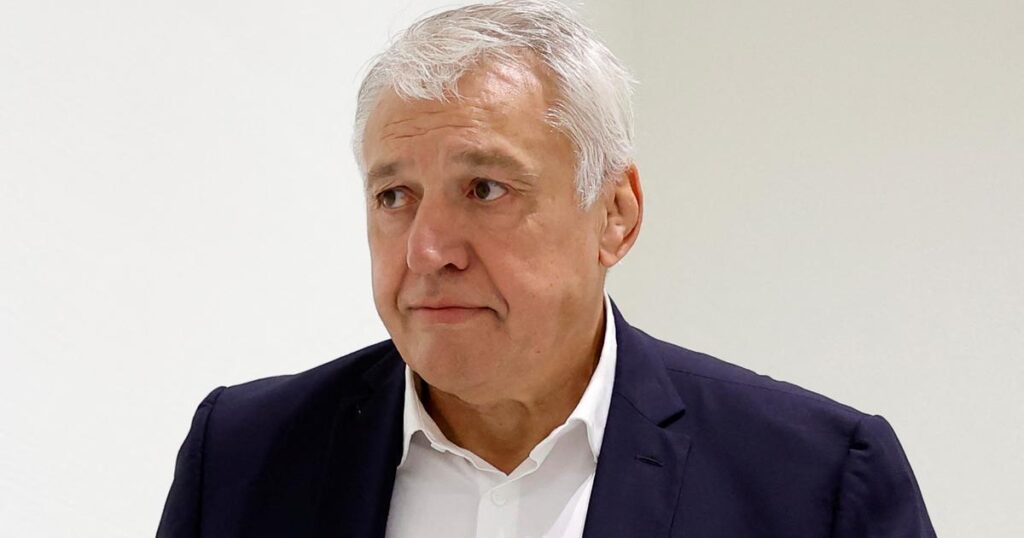If France is successful in its bid to host the Rugby World Cup in 2023, it will owe at least some of that success to the huge figure that sits at the helm of the country’s bid: On Thursday, Claude Atcher attempted to clarify the often murky connections that were related to the federation as well as who brought them before the Paris Criminal Court. This 67-year-old former rugby player who oversaw the organizing committee of the 2023 World Cup until his layoff at the end of August for managerial practices deemed “alarming” stated, “I have the weakness to imagine that I am one of the primary architects of the victory of France.”
These are some of the additional complaints that led to him having to appear “together with Bernard Laporte, head of the French Federation (FFR), breach of trust on both of their parts. Claude Atcher and his company, Score XV, would have been able to earn excessive quantities of money beginning in 2017 when he was serving as the head of France’s bid for the World Cup if they had the approval of the latter. The payment to Score XV of a bonus of 30,000 euros was also kept by the National Financial Prosecutor’s Office (PNF), which is notable given that the payment by the FFR of governance help for 21,000 euros would never have been implemented. The federation would sustain a total loss of value equal to 81,400 euros as a result of the incident.
While Mr. Atcher is at the wheel, he first considers his military record. Over the past twenty years, he has been the driving force behind three winning bids for the Rugby World Cup: France (2007, 2023) and Japan (2019). At the beginning of 2017, Mr. Laporte, who had recently taken over as president of the FFR, called on him, and the French application file was in his hands “Mr. Atcher has no recollection of any of it. On the other hand, there are only a few months left until it must be submitted to international bodies.
“To rise to the challenge”
“As soon as we saw that nothing had been done, Bernard requested me to take up the issues that were presented to me, recalls Mr. Atcher. The 845-page file that was handed in in June will make it possible for France to win the bet in November of 2017, and Mr. Atcher will then take over as the president of the Public Interest Group (GIP), which is in charge of organizing the 2023 World Cup. During this procedure, economic linkages are established between his company and the federation, for a total amount estimated at more than 300,000 euros, and without major legal formalism: the accepted quotes, even summary ones, work as a contract.
“Bernard Laporte, who was at the helm during the incident, explains that “we were in a rush.” After the investigation, only one of them will raise questions regarding a sum of 21,000 euros and how it relates to a governance mission because the document in issue would not have been translated “according to the statement made by the prosecution, “by no genuine benefit.”
Mr. Atcher, who is in charge and ensures that the organization is successful, “misunderstanding” and that this mission has been completed: it was a question of preventing possible “difficulties” in relations with the FFR, which, once the World Cup has been awarded, loses the management of the file in favor of the Public Interest Group. The mission was to prevent this “misunderstanding” and it has been completed. Mr. Atcher adds that he was aware of the difficulties that existed in advance of the 2007 World Cup in France and says that he did not want to “make the same mistakes.”
Atcher was accused of confusing his accounts with those of his company
“We wanted everyone to feel like they were a part of it,” Bernard Laporte explains. Concerning the bonus of 30,000 euros, the Anti-Corruption Agency was taken aback by the fact that it was given “does not fall within a decision that was made by the FFR’s collegial body,” the president of the court recollects.
Mr. Atcher defends the legitimacy of this bonus since all of the employees of the FFR had received a bonus, even though he does not comment on the contractual regularity of the incentive. “I considered it sad that Score XV did not benefit from a bonus that rewards its merit,” the defendant maintains, who confirms not to have perceived any “every penny” personally. “I felt it regrettable that Score XV did not benefit from a bonus that rewards its excellence.”
However, the PNF, who accuses Mr. Atcher of confusing his accounts with those of his company, is not persuaded by this distinction at all. “At the hearing, the prosecutor, Francois-Xavier Dulin, pings the defense benches with the statement, “It’s simple: all of Score XV is an abuse of social good.” This causes the defense benches to continue to think about the damage of 80,000 euros that would have been inflicted on the FFR. “Mr. Atcher indicates that he slept there for a few nights but was never able to determine where the money in question originated.
